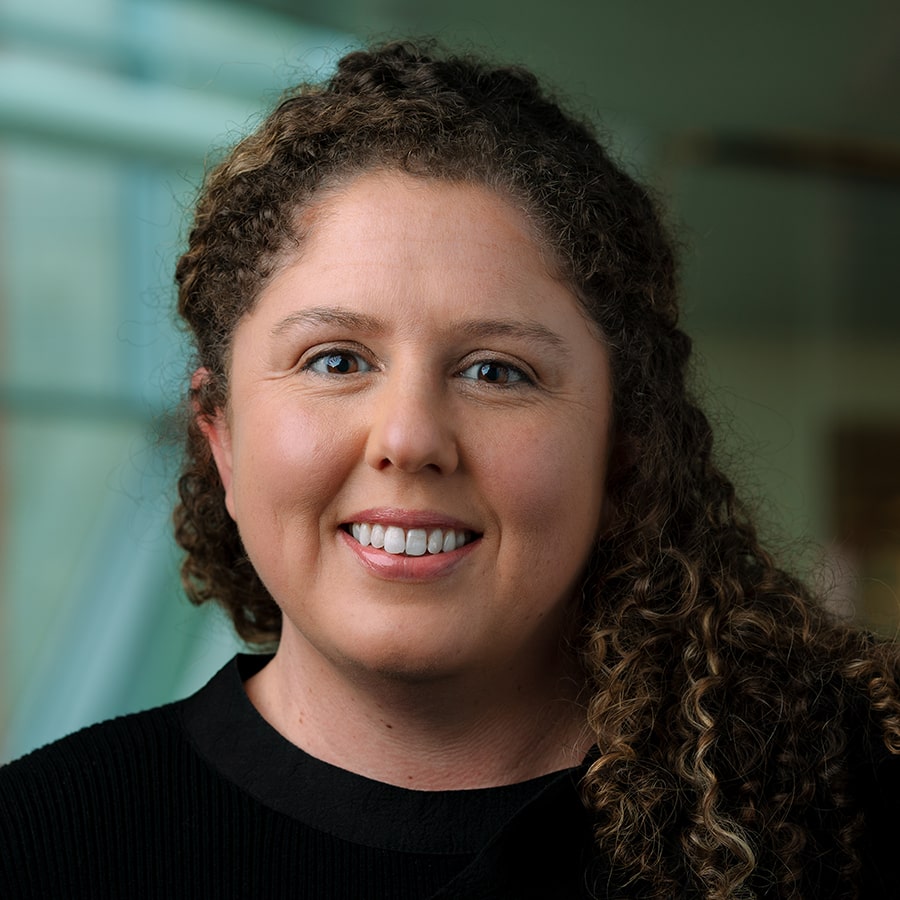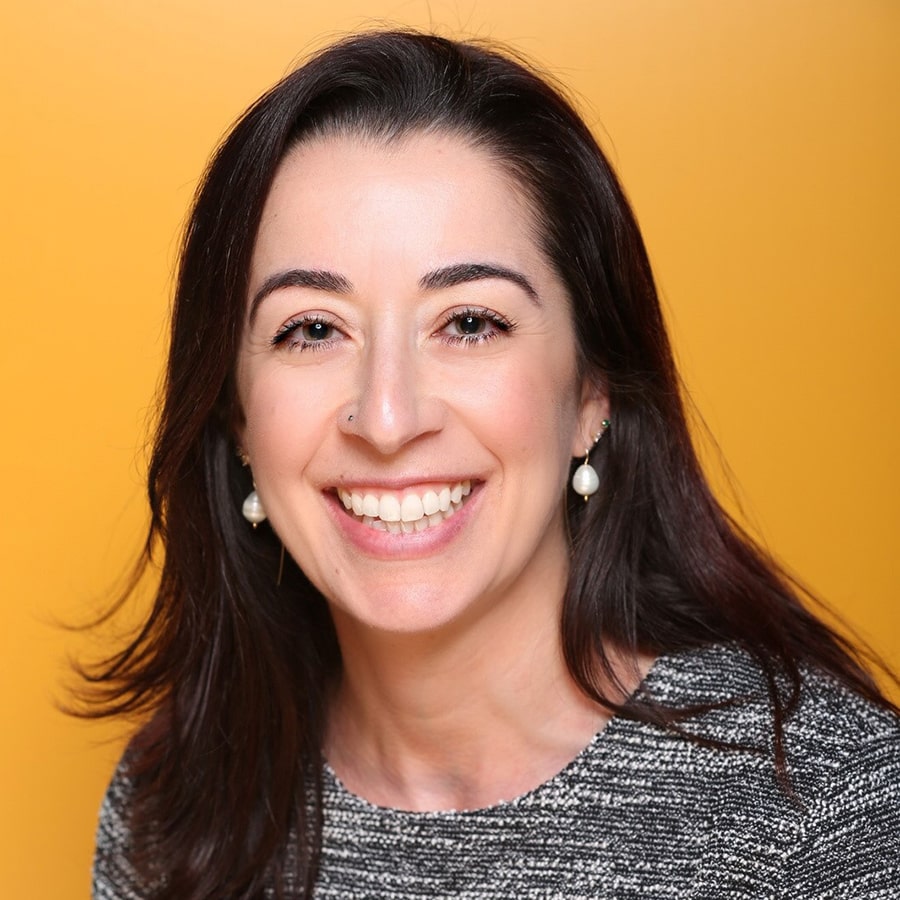- Home
- News
- Recent News
- Partnering to Encourage Age-Friendly Communities
Partnering to Encourage Age-Friendly Communities Across the Commonwealth
A interview with Caitlyn Coyle, PhD ’14, Director of UMass Boston’s Center for Social and Demographic Research on Aging (CSDRA).

Setarreh Massihzadegan (SM): The aging of our country’s population is often discussed in the context of the impact it will have on the health care system and social services. In what context do you most often think about population aging?
Caitlin Coyle (CC): To me, population aging is an exciting opportunity for our whole society. We are seeing a lengthening in the amount of time spent “in later life,” which means opportunities for all of us to think about how we want to spend those years. As a society, it pushes us to expand ways of leveraging human potential—not just those who contribute reproductively or via labor force participation. We stand to benefit from a huge amount of accumulated expertise, knowledge, and experience from older people to an extent that was not possible in earlier times; they can contribute a lot to charting the future. Instead of reading about history makers, we have the opportunity to work directly with them.
SM: What are the key areas of your current research portfolio, and what methods do you use to understand them?
CC: An overarching question that guides my research is: How can we transform local environments to optimize well-being for diverse populations of older adults and families? Currently, this looks like projects to promote information equity among diverse groups of older Bostonians. We’re looking at how they receive information, what messaging they find compelling, and how trust is built between people and the organizations and government agencies that offer benefits and services that can improve the aging experience. At the CSDRA, we work with senior centers, the government, and nongovernmental organizations across the Commonwealth to engage older adult populations to document—using both quantitative and qualitative methods— their needs and preferences for facets of aging such as health and wellness services, financial security, social and recreational programming, transportation, communication, and information. Based on the data we collect, we make recommendations for how municipalities can improve local operations to accommodate and leverage population aging.
What makes the CSDRA special is our community-engaged research approach to these topics. We invite community members to participate throughout the research process, from identifying research questions to implementing interventions and analyzing results. In the context of aging, this means bringing older adults, caregivers, and community organizations together to identify needs and develop solutions to improve quality of life. It can be a slow and sometimes nonlinear process, but the effort is always worth it. I am proud of using this process in projects with more than 80 cities and towns over the past twelve years.
Aging is a complex and multidimensional process that requires input from various disciplines and sectors, including health care, social services, urban planning, and policy. When it comes to making recommendations, we prioritize collaboration, inclusivity, and empowerment, aiming to create sustainable solutions that enhance the health, well-being, and dignity of older adults within their communities.
SM: Having worked with so many communities, how unique are their challenges? What makes a community successful at becoming age-friendly?
CC: The elements of livability that need to be in place for a community to thrive are relatively universal—housing, transportation, accessibility of the built environment, and things like opportunities to engage socially and contribute meaningfully. That said, communities vary widely in their capacity and preference for accomplishing age inclusivity across these topics. I have observed that implementation of change has been most successful for communities that have leaned into their local context and taken the time needed to authentically engage the community and create realistic ways for local leaders and community partners to work together. From my perspective, it is not about how fast progress is made, nor is it about how innovative the idea, but rather, the embracing of the concept and the flexibility to chart their own path.
SM: Following the COVID-19 pandemic, the public seems to be more attuned to issues of social isolation and loneliness. How do you describe these concepts and how does your research address them?
CC: Gerontologists have been exploring how social relationships shape an individual’s development across the life course and, subsequently, affect outcomes in later life since well before the pandemic. For me, this stretches back to my dissertation topic that explored the impact of social isolation and loneliness on chronic disease self-management among older people. It also includes cofounding the Massachusetts Coalition to Build Community & End Loneliness in 2019. We were well down the path of understanding the consequences of social disconnection before the pandemic.
That said, the global shutdown caused by COVID-19 spotlighted the experiences of social isolation—an objective lack of social contact—and loneliness, a distressing feeling that stems from an inequity between one’s desired and actual levels of social connection. Since 2020, we’ve seen an explosion of attention paid to the public health aspect of this for people of all ages, including the 2023 Surgeon General’s warning about the epidemic of loneliness and isolation.
The CSDRA and Massachusetts coalition have focused most recently on promoting “social health” in the same way we attend to our physical and mental health. A lot of this work involves building public awareness and eroding the stigma around loneliness. We are also working to develop models for evaluating how existing programs, services, policies, and activities increase or improve social connection and a sense of belonging and perceived connections to contexts beyond one-on-one relationships. In essence, we are widening the lens from reducing the personal experience of social isolation and loneliness towards promoting social health outcomes for a wide range of people and across settings.

Director of UMass Boston’s Center for Social and Demographic Research on Aging (CSDRA)

Gerontology; Research Assistant, Gerontology Institute’s Center for Social and Demographic Research on Aging (CSDRA)